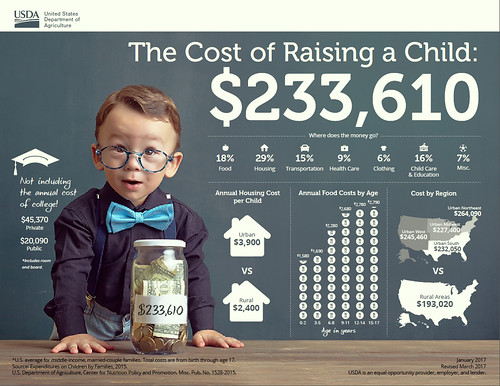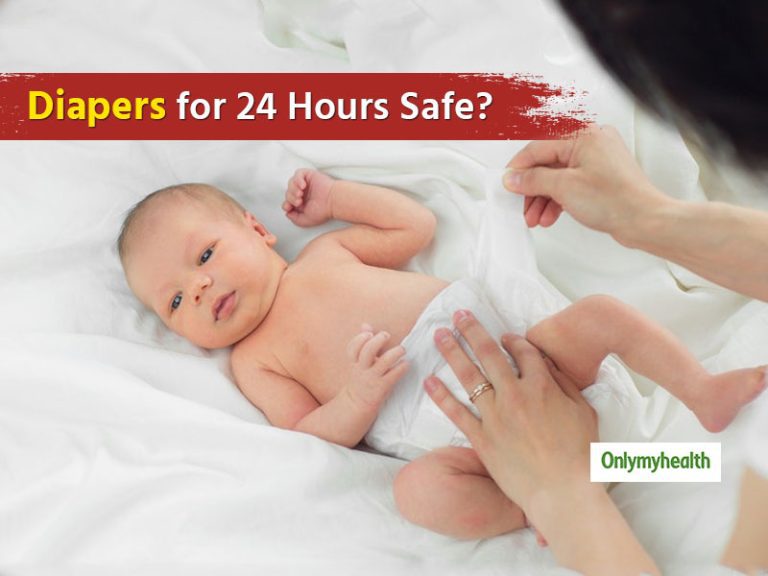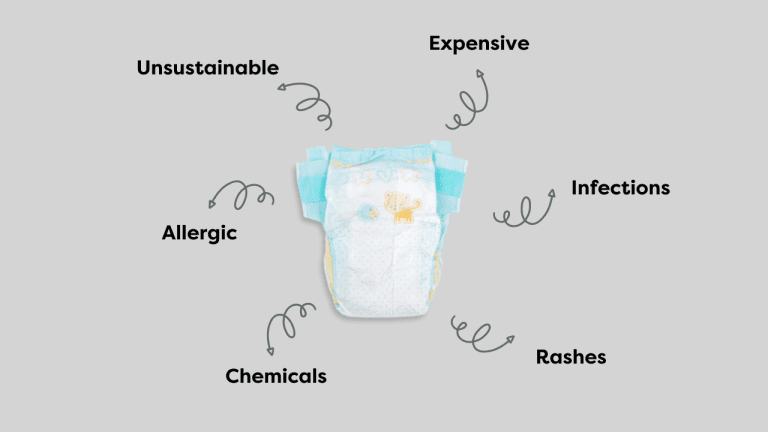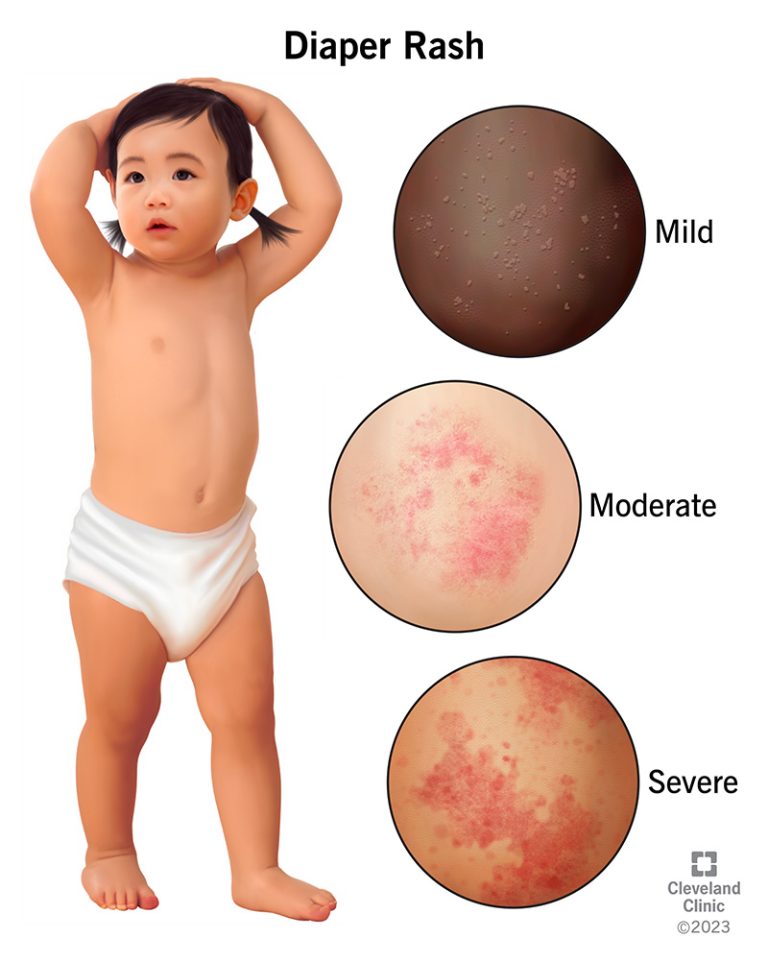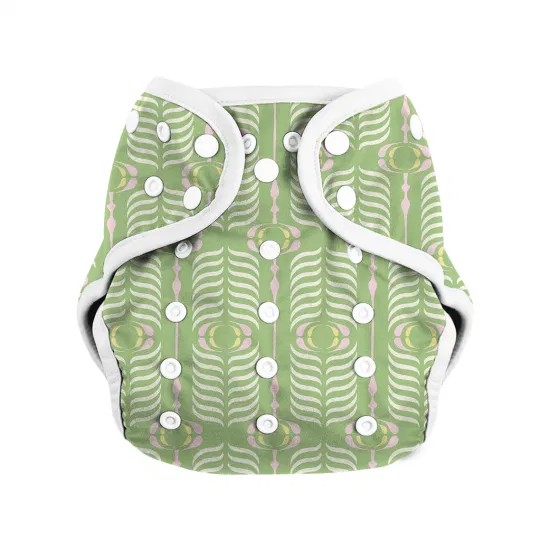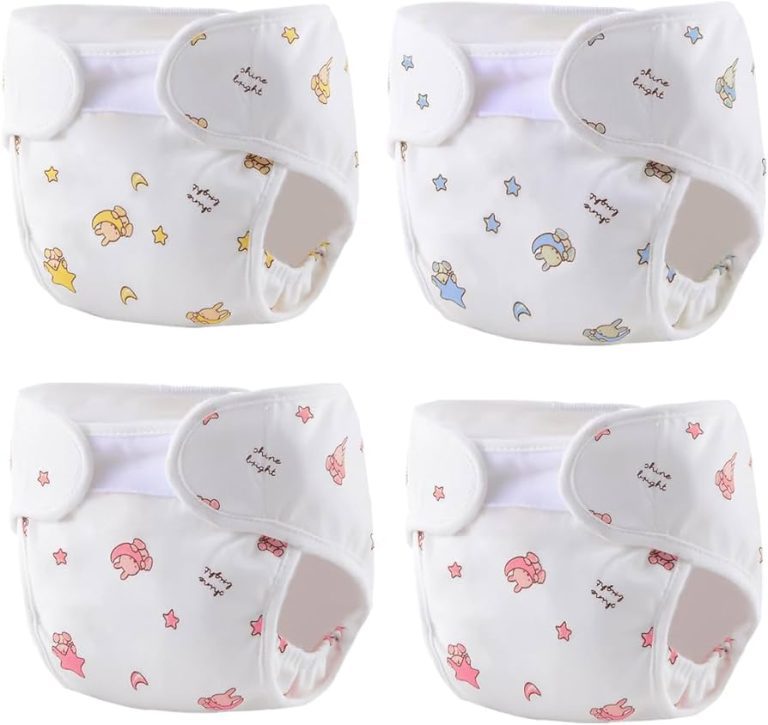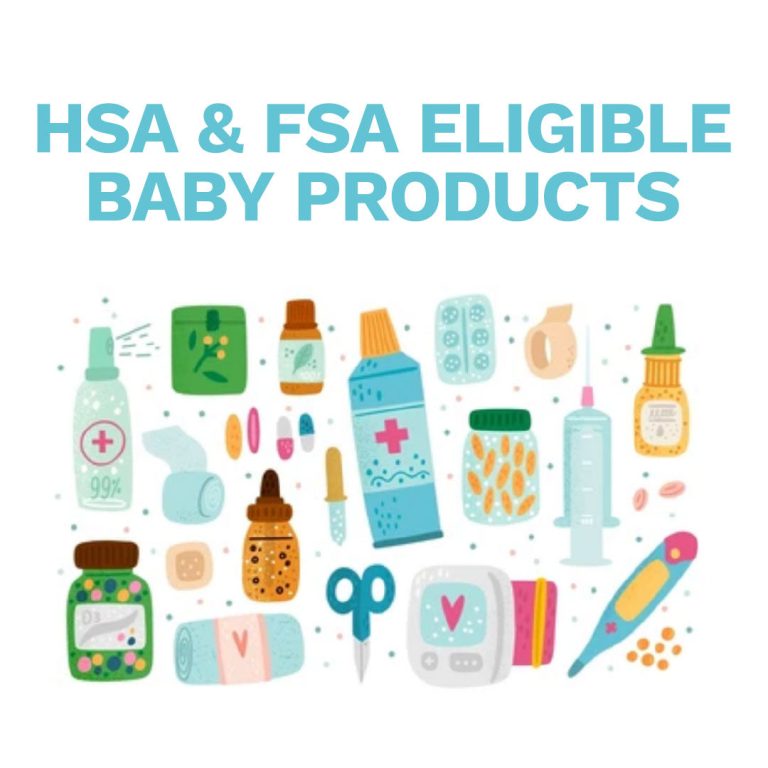How Much Does Baby Food Cost Per Week? A Budget Breakdown
Baby food costs about $20 to $50 per week, depending on brand and type. Organic options may cost more.
Parents often wonder about the weekly expense of feeding their baby. Baby food costs vary based on brand, type, and whether it’s homemade or store-bought. Organic and specialty foods usually come with a higher price tag. On average, families spend between $20 and $50 each week on baby food.
This estimate includes purees, pouches, and jars. Homemade baby food can be a cost-effective alternative, though it requires more preparation time. Budgeting for baby food helps parents plan better and ensures their child receives nutritious meals. Understanding these costs helps in making informed decisions about what to feed their little one.

Credit: www.babycenter.com
Introduction To Baby Food Budgeting
Raising a baby involves many costs. One of the significant expenses is baby food. Understanding how much you will spend on baby food weekly is crucial. This helps in planning and budgeting effectively.
Importance Of Budgeting
Budgeting for baby food is vital. It ensures you do not overspend. It also helps in managing other household expenses. Knowing your weekly baby food costs can help in financial planning.
Having a budget reduces stress. It provides peace of mind. You are prepared for all expenses. This is essential for a growing family.
Common Baby Food Costs
Baby food costs vary. They depend on the type and brand of food. Here is a breakdown:
| Type of Baby Food | Average Cost per Week |
|---|---|
| Homemade Purees | $10 – $20 |
| Store-Bought Jars | $20 – $30 |
| Organic Baby Food | $30 – $40 |
| Specialty Foods (Allergies/Special Diets) | $40 – $50 |
Homemade purees are often the cheapest. They require time and effort. Store-bought jars are convenient but can be pricier. Organic baby food has higher costs due to quality. Specialty foods cater to specific needs and are the most expensive.
Consider these costs while planning your budget. Every family is different. Choose what works best for you.
Types Of Baby Food
Baby food is essential for your child’s growth and development. Understanding the different types of baby food can help you plan your budget better. Let’s dive into the main categories to consider: homemade vs. store-bought and organic vs. non-organic.
Homemade Vs. Store-bought
Parents often debate between making baby food at home or buying it. Each option has its pros and cons:
| Type | Pros | Cons |
|---|---|---|
| Homemade |
|
|
| Store-Bought |
|
|
Organic Vs. Non-organic
Choosing between organic and non-organic baby food is another important decision. Here’s what you need to know:
| Type | Pros | Cons |
|---|---|---|
| Organic |
|
|
| Non-Organic |
|
|
Weekly Cost Of Homemade Baby Food
Homemade baby food can be a cost-effective and nutritious option. Understanding the weekly cost helps you budget better. This section covers the cost of ingredients and preparation time.
Ingredients Cost
The cost of ingredients varies based on the type of food. Here’s a table to break it down:
| Ingredient | Cost per Week ($) |
|---|---|
| Fruits (e.g., apples, bananas) | 5-10 |
| Vegetables (e.g., carrots, peas) | 5-8 |
| Grains (e.g., oatmeal, rice) | 3-5 |
| Proteins (e.g., chicken, beans) | 7-12 |
On average, you may spend around $20-35 per week on ingredients. Buying in bulk and choosing seasonal produce can lower costs.
Preparation Time
Making baby food at home also requires time. Here’s a breakdown of the time needed:
- Washing and peeling: 10-15 minutes
- Cooking: 20-30 minutes
- Blending: 10-15 minutes
- Portioning and storing: 10-15 minutes
Total preparation time per week is around 1-1.5 hours. Investing this time can ensure your baby eats fresh, healthy food.
Weekly Cost Of Store-bought Baby Food
Understanding the cost of store-bought baby food helps in budgeting. Parents often wonder how much they will spend weekly. Let’s break down the weekly costs and explore popular brands.
Price Range
The price of baby food varies by brand and type. Here is a general price range:
| Type of Baby Food | Price per Jar/Pouch |
|---|---|
| Purees | $0.50 – $1.50 |
| Cereals | $2.00 – $4.00 |
| Snacks | $1.00 – $3.00 |
On average, a baby eats three jars or pouches a day. So, weekly costs can range from $10.50 to $31.50 for purees alone. Adding cereals and snacks can increase the cost further.
Popular Brands
Several popular brands offer a variety of baby foods. Here are some well-known brands:
- Gerber: Known for its wide variety and affordability.
- Beech-Nut: Famous for natural ingredients and minimal processing.
- Earth’s Best: Offers organic options for health-conscious parents.
- Plum Organics: Popular for innovative flavors and organic ingredients.
Each brand has different pricing, which can affect the weekly cost. Choosing a mix of brands can help manage expenses while providing variety.
Factors Affecting Baby Food Costs
Understanding the factors affecting baby food costs can help parents budget effectively. Several elements influence how much you spend on baby food each week. Below are key factors to consider:
Location
The cost of baby food varies significantly by location. Urban areas often have higher prices compared to rural regions. For instance, baby food in New York City may cost more than in a small town in Iowa. Local stores also impact prices. Specialty stores might charge more than big-box retailers. Additionally, local taxes and import fees can affect the final price.
Seasonal Ingredients
Baby food made from seasonal ingredients often costs less. Fruits and vegetables in season are usually cheaper. For example, strawberries are cheaper in summer. Conversely, off-season produce can be expensive. If you make homemade baby food, seasonal shopping can save money. Pre-packaged baby food brands also reflect seasonal pricing. Always check ingredient lists and seasonal availability to optimize costs.
Saving Tips For Baby Food
Baby food costs can quickly add up, but you can save money. Here are simple tips to help you cut costs without sacrificing quality.
Bulk Buying
Buying in bulk can save you a lot of money. Many stores offer discounts when you buy larger quantities. Look for sales on baby food jars, pouches, or boxes. You can store unopened items for months.
| Item | Single Price | Bulk Price | Savings |
|---|---|---|---|
| Baby Food Jars | $1.00 each | $10.00 for 12 | $2.00 |
| Baby Cereal | $2.50 each | $20.00 for 10 | $5.00 |
Join a wholesale club for additional bulk savings. These memberships often pay for themselves.
Seasonal Shopping
Fruits and vegetables are cheaper when they are in season. Buy these fresh items when they are at their lowest price. You can also make and freeze homemade baby food.
- Spring: Peas, Carrots, Spinach
- Summer: Zucchini, Blueberries, Peaches
- Fall: Apples, Pumpkins, Squash
- Winter: Sweet Potatoes, Pears, Broccoli
Make large batches and freeze in small portions. Use ice cube trays for perfect serving sizes. Homemade baby food is often healthier and more nutritious.
Sample Weekly Budget Plans
Planning your baby’s food budget can be challenging. Below are two sample plans. Each plan helps you understand the cost implications of different choices.
Low-cost Plan
This plan focuses on affordability. It includes a mix of store-brand baby foods and homemade purees. This plan ensures your baby gets the nutrients they need without breaking the bank.
| Item | Quantity | Cost |
|---|---|---|
| Store-brand baby cereal | 1 box | $2.50 |
| Homemade vegetable purees | 7 servings | $5.00 |
| Store-brand fruit jars | 7 jars | $7.00 |
| Homemade meat purees | 3 servings | $3.50 |
Premium Plan
This plan is for those who prefer branded and organic options. It includes a mix of premium baby foods and ready-made meals. This plan offers convenience and high quality.
| Item | Quantity | Cost |
|---|---|---|
| Organic baby cereal | 1 box | $5.00 |
| Branded vegetable purees | 7 servings | $14.00 |
| Branded fruit jars | 7 jars | $14.00 |
| Branded meat purees | 3 servings | $9.00 |
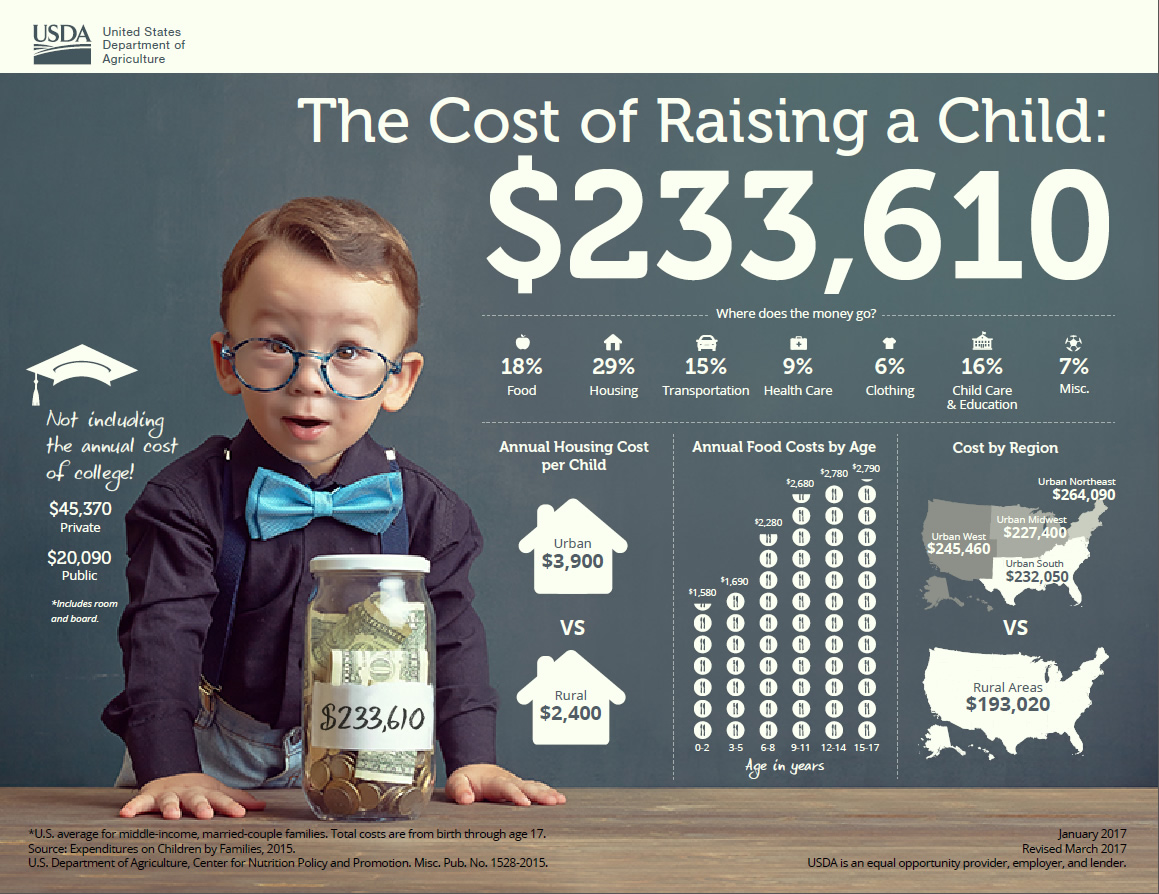
Credit: www.usda.gov
Conclusion And Final Thoughts
Understanding the cost of baby food per week helps manage your budget. It’s essential to balance cost, nutrition, and long-term considerations.
Balancing Cost And Nutrition
Parents want the best for their babies. This includes providing nutritious food. A balanced diet ensures healthy growth and development.
Here is a simple table showing the cost of different types of baby food:
| Type of Baby Food | Average Cost Per Week |
|---|---|
| Homemade Purees | $10 – $15 |
| Store-Bought Jars | $20 – $30 |
| Organic Brands | $25 – $35 |
Choosing homemade purees can save money. Store-bought jars offer convenience but cost more. Organic options are pricier but may offer higher quality.
Long-term Considerations
Consider long-term health benefits. Investing in nutritious food now can prevent future health issues.
Think about these points:
- Healthier babies grow into healthier adults.
- Quality food can boost cognitive development.
- Preventing deficiencies reduces healthcare costs later.
Balancing immediate costs with future benefits is wise. Making informed choices ensures your baby thrives.

Credit: www.babycenter.com
Frequently Asked Questions
How Much Does Baby Food Cost Weekly?
The average weekly cost for baby food is around $20 to $50. This varies based on brand and type.
Is Homemade Baby Food Cheaper?
Yes, homemade baby food is generally cheaper. It can reduce costs to around $10 to $15 per week.
What Factors Affect Baby Food Cost?
Brand, organic or non-organic options, and type (jarred or pouches) significantly affect baby food costs.
How Can I Save On Baby Food?
Buying in bulk, using coupons, and making homemade baby food can help you save money.
Conclusion
Understanding baby food costs helps you budget effectively and ensure your baby gets the best nutrition. Planning meals, comparing brands, and opting for homemade options can save money. Remember, investing in quality baby food contributes to your child’s health and development.
Always prioritize your baby’s nutritional needs within your budget.

